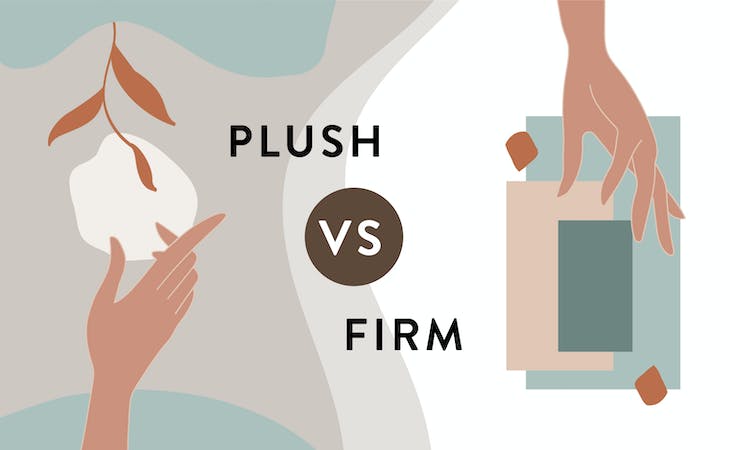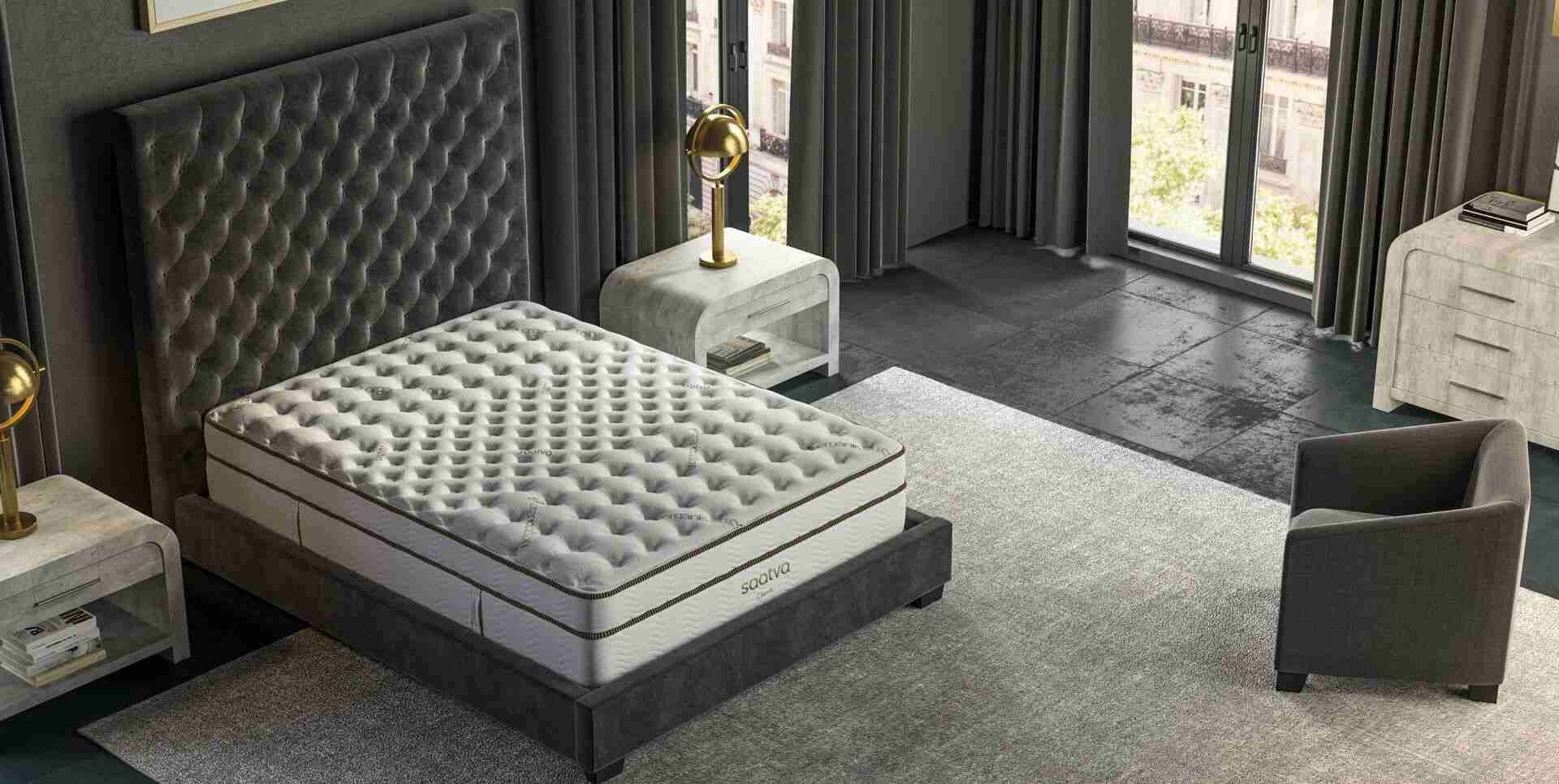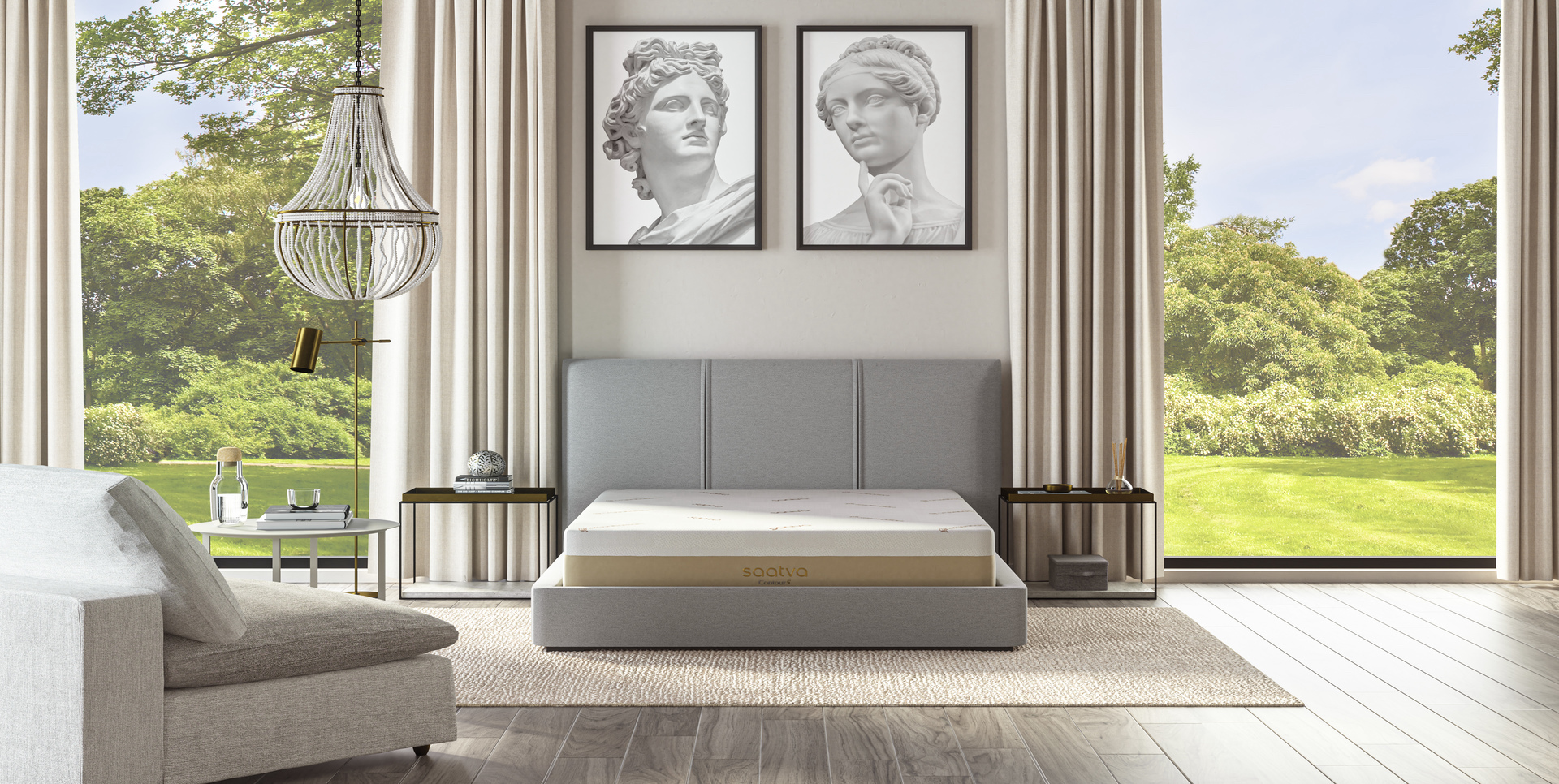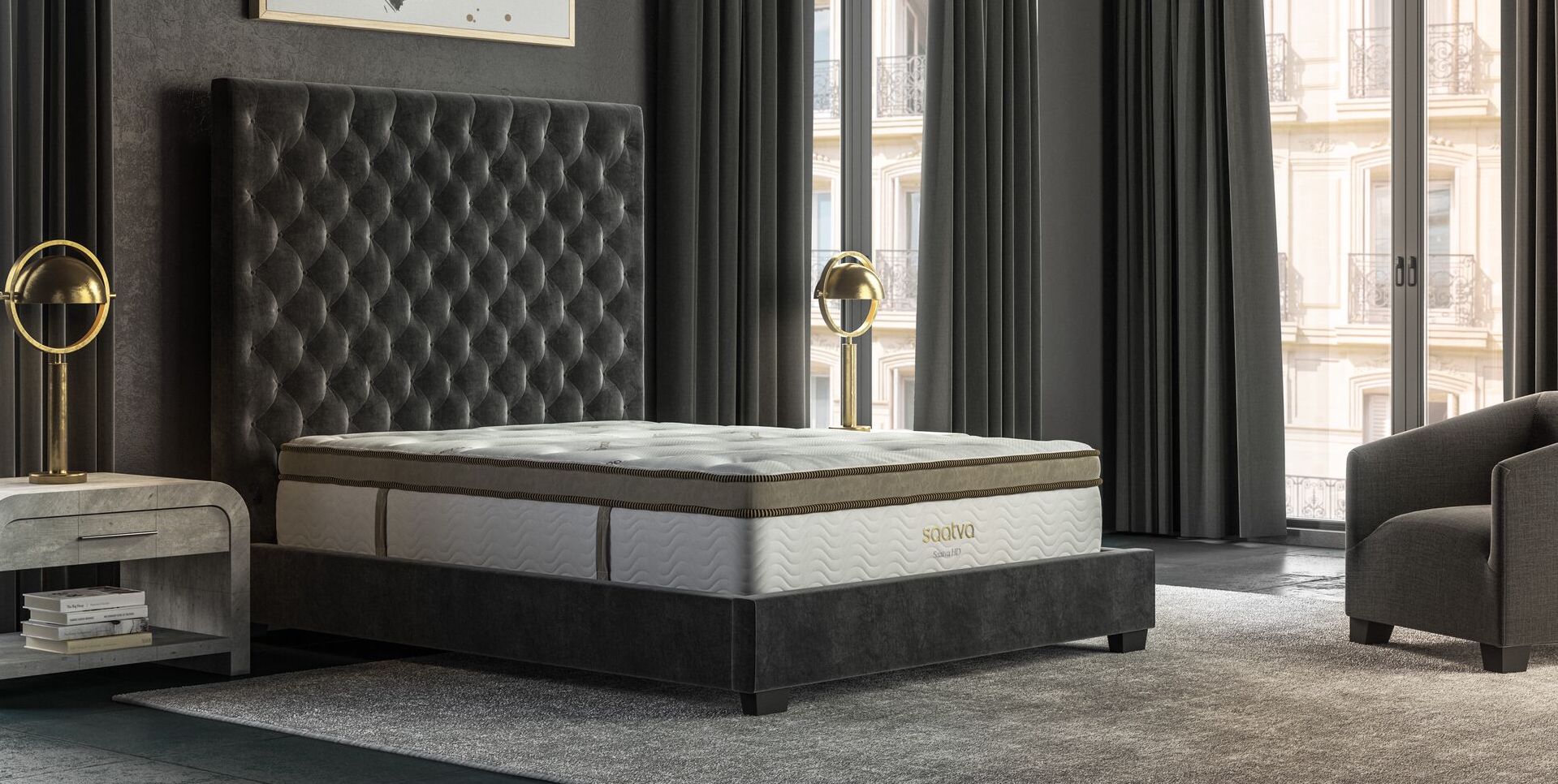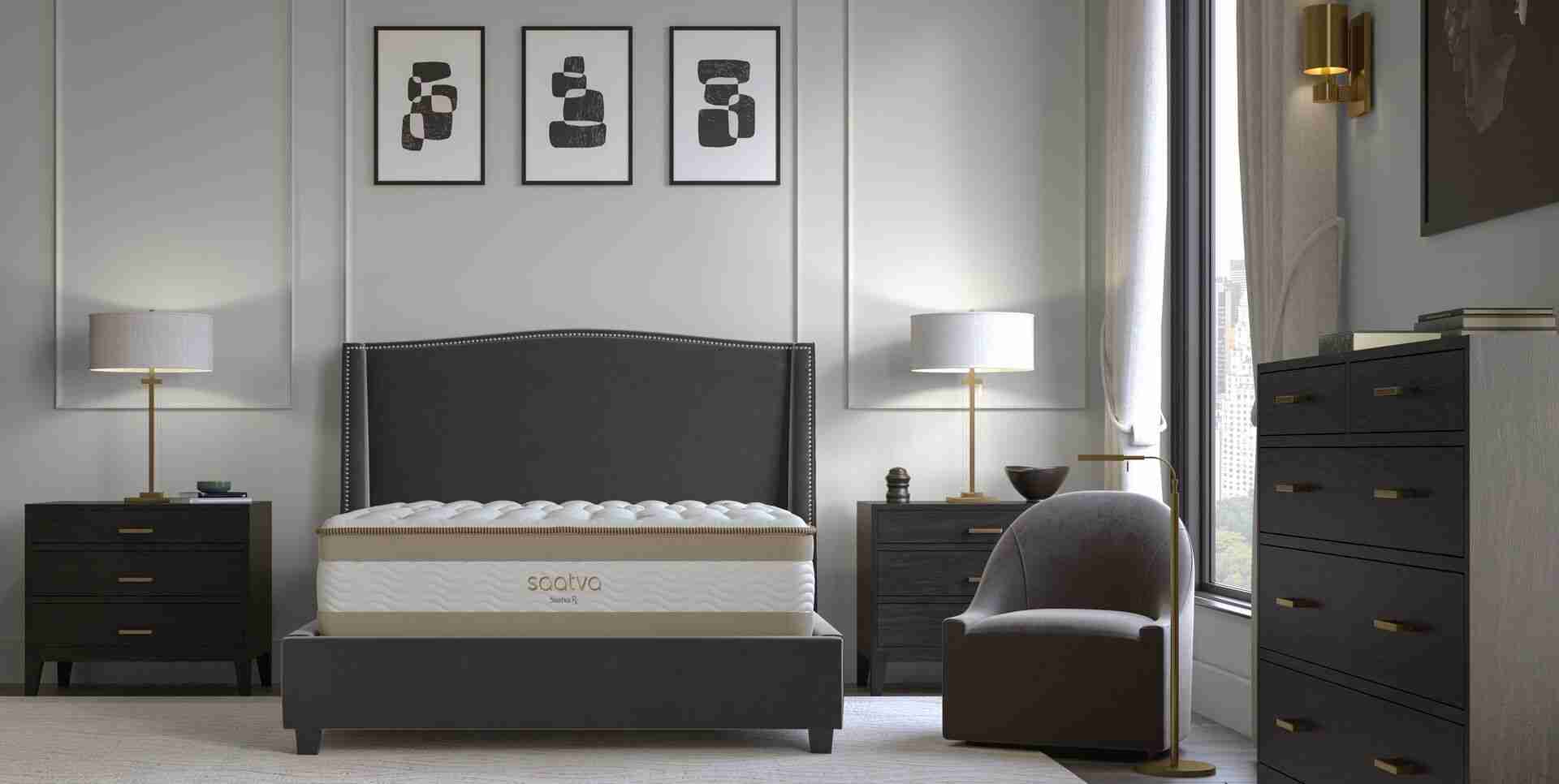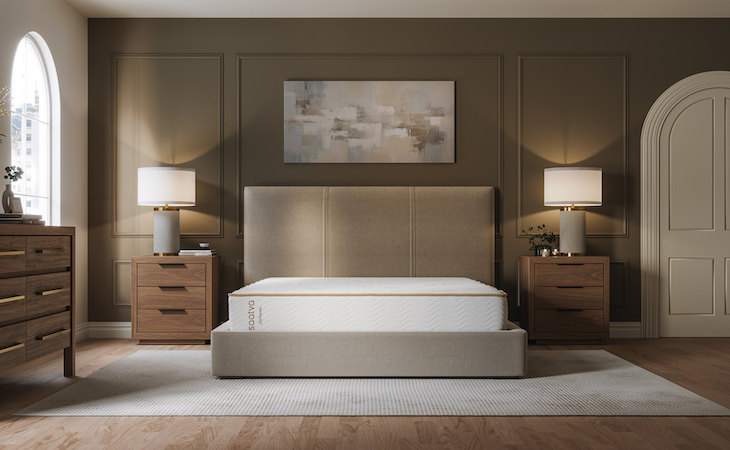When shopping for mattresses, there’s a whole lot of decisions to make. You’ll need to select a mattress size and mattress type and also choose between a plush and firm mattress.
Choosing a mattress firmness can get extra confusing because the same way different clothing brands will use different sizing scales, there’s no industry standard or uniform specification used to measure firmness.
In fact, many manufacturers have a unique mattress firmness scale, meaning grades of softness and firmness can vary widely by brand. That can be confusing for anyone doing comparative shopping.
Firm, plush, soft, and their many variations (think: cloud-like, cushiony, or in-between descriptors like medium-firm) are subjective qualities meant to describe how a mattress might feel to any one individual.
So, what’s a mattress shopper to do?
First, understand a little bit more about what “plush” or “firm” in a mattress really means and how it differs from that other essential quality, support.
Below, learn about the differences between plush and firm mattresses, whether your mattress being plush or firm factors into sleep, and get answers to your most commonly asked questions about mattress firmness.
Watch this video to learn all about mattress firmness and how to decide what’s right for you:
What is mattress firmness?
Mattress firmness refers to how the mattress feels when you lie down on it. The firmness comes from the amount and type of material in the top, or comfort, layer of the mattress. Keep in mind that feel can be quite subjective—and how firm one mattress feels for you may be different for someone else.
Here’s a look at our mattress firmness scale:

Mattress brands, including Saatva, often use a mattress firmness scale (typically 1–10, with 1 being the softest and 10 being the firmest) to help give potential mattress shoppers a frame of reference.
Plush vs. firm mattresses: What’s the difference?
A firm mattress is any mattress that provides you with strong support, while a plush mattress offers more cushioning and feels easier to sink into. The level of firmness you need in your mattress depends on your body weight, sleep style, joint health, and personal preference.
It’s important to note that whether a mattress feels plush or firm varies from brand to brand and individual to individual.
“Mattress firmness is a comfort term,” says Robert Oexman, chiropractor and chief science officer at iSense.
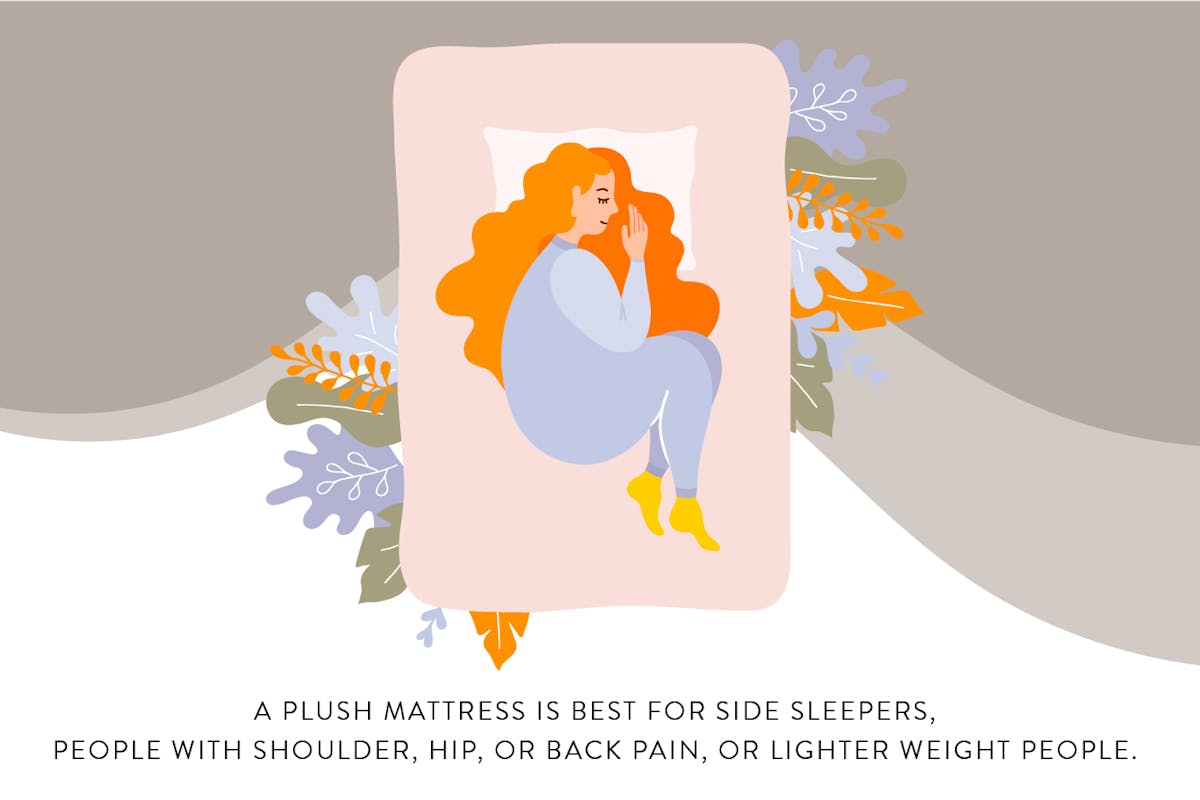
One company’s “medium-firm” mattress could be just as firm as another’s “extra-firm” mattress. When an elephant lies down on a mattress, for example, it’s going to feel different than when a mouse lies on that same mattress,” says Oexman.
While there’s no definitive standard, many mattress companies (including Saatva) rate the firmness of their products on a 10-point scale.
Typically the higher the number, the firmer the mattress, from 3-4 at the low end to 7-8 at the high end.
Plush vs. firm mattress comparison chart
Here’s how plush and firm mattresses stack up against each other:
Mattress Firmness Sleep Position Body Weight Pressure Relief Motion Isolation Support Level Plush Side sleepers Lighter body weights Relieves pressure on shoulder/hips Softer comforter layers help promote motion isolation May not provide enough support for spinal alignment Firm Back & stomach sleepers Higher body weights Relieves pressure on back Minimal comfort layers may result in less motion isolation Helps promote neutral spinal alignment
Different sleeping positions need different comfort levels
When it comes to mattress firmness, one important consideration is your typical sleeping position.
Side sleeper
If you’re a side sleeper, for example, you have concentrated pressure points in contact with the mattress: your shoulder, hip, and outside of your knee and foot. In that case, a softer mattress lets you sink in and provides better pressure relief.
Stomach sleeper
If you’re a stomach sleeper, you’ll probably do better on a firmer mattress, which will help prevent arching in the back (and potential pain later on).
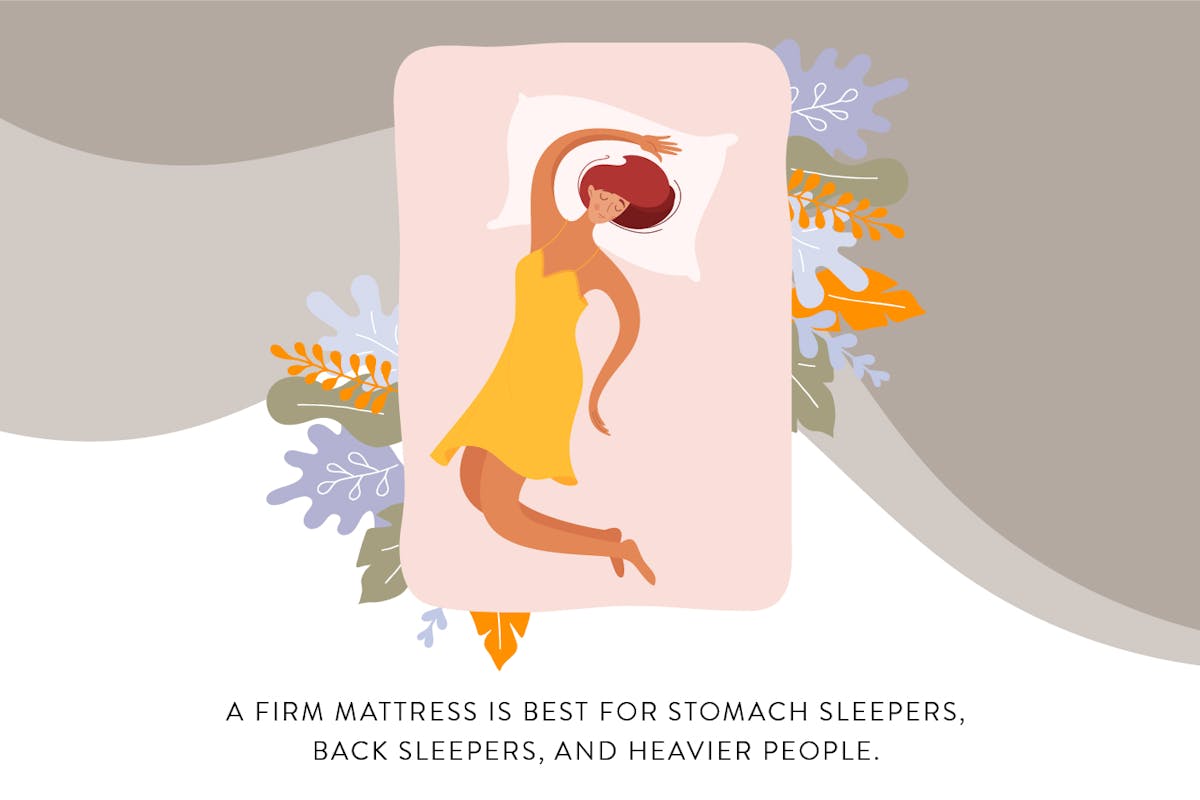
Back sleeper
If you’re a back sleeper, count yourself lucky. You will likely sleep well on most types of mattresses, as long as it’s not so soft or firm that it throws your spine out of neutral alignment. (Here’s more advice on how to match your mattress to your sleep position.)
Lightweight sleepers
Plush mattresses are great for lightweight sleepers. These types of mattresses offer excellent pressure relief and can help lighter weight individuals feel more comfortable during sleep.
Average weight sleepers
Average weight sleepers will do best with a slightly firm mattress. This is somewhat middle of the road on the traditional point-based mattress scale and known as a medium-firm mattress. This offers a harmonious blend of support and comfort—exactly what an average weight sleeper needs.
Heavy sleepers
Firm mattresses are best for heavy sleepers. This this option provides the most support and durability for higher weight individuals. What’s more, heavier sleepers may sometimes deal with back pain, and a firm mattress is the best way of avoiding dealing with that uncomfortable issue.
A mattress doesn’t need to be firm to be supportive
A plusher mattress can still be supportive. Support comes from the core of the mattress—the denser bottom layers of foam in foam mattresses and the spring system in an innerspring mattress, not from how firm or plush the surface layers, or “comfort layers,” feel.
Oexman defines support as the ability to adopt a variety of positions throughout the night while maintaining your spine in a relatively neutral horizontal position.
In other words, you want to avoid the U-shaped curve you’d get from sleeping in a hammock, as well as the unnatural bend you’d experience if you lie on your stomach on the floor all night. Instead, your spine should be supported in its natural S-shaped curve and your ears, shoulders, and hips should be aligned.
A soft or ultra-plush bed can still provide plenty of support, Oexman says, so long as the layers underneath are appropriate for the person who’s sleeping on it. You can still go ahead and sink into it enough to get the support you need,” he says.
The bottom line: Whether you’re waking up with aches and pains or it’s simply time for a new mattress, think of support first.
Then, for your best night’s sleep, focus on mattress comfort. Choose the firmness or softness that feels most comfortable to you, and you can’t go wrong.
FAQs
Are plush mattresses good for back pain?
Softer mattresses can be a good alternative for someone who’s having back pain with their existing medium-firm or firm mattress. They can also be a great choice for side sleepers who are having back pain with their existing mattresses.
Is a firm mattress good for your back?
Firm mattresses can be a good option for people who have lower back pain. A firmer mattress can offer support that keeps your lower back from sinking—and it can help distribute your weight evenly.
However, a firm mattress isn’t always best for back pain. Other factors come into play, like sleep style and body type.
Do plush mattresses wear out faster?
A quality plush mattress should last anywhere from seven to 10 years, which is about the same range as firm mattresses. A mattress’s lifespan doesn’t rely on firmness level as much as quality and materials used.
Are plush mattresses good for side sleepers?
Plush mattresses can be a good choice for side sleepers. The softer feel allows the mattress to contour to the curves of your body and spine to deliver more pressure relief under the shoulders and hips.
Are firm mattresses uncomfortable?
This is really a matter of preference. While firm mattresses aren’t usually as soft or flexible as plush mattresses, they can certainly be very comfortable—especially for those who prefer a firmer mattress.
Is a firm or plush mattress better?
Whether you prefer a firm or plush mattress depends on factors like sleep position, body type, and personal comfort preferences. Again, the quality of your mattress will have more to do with the brand you choose and the materials used in its construction.
It’s hard to say one type is definitively better than another.
Plush vs. firm mattress: What’s the best mattress for you?
While lack of support is what causes you to wake up with back or shoulder pain or feeling like you didn’t get a good night’s sleep, Oexman says, comfort plays a role in how quickly you fall asleep versus how much you toss and turn once your head hits the pillow.
So, consider both the support you need as well as what is most comfortable for you to find your perfect mattress.
Our mattresses come in a variety of firmnesses to suit every sleep style. Try a new Saatva mattress for 365 nights to see if one of our plush, medium-firm, or firm mattresses is right for you.
If you decide your initial selection isn’t right for you, you have the option to exchange your mattress for another firmness during the trial period.

